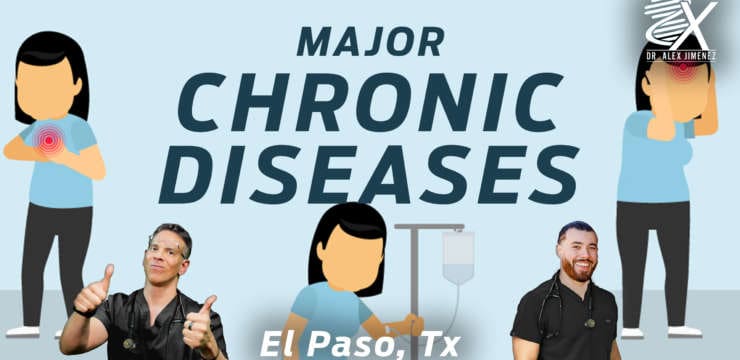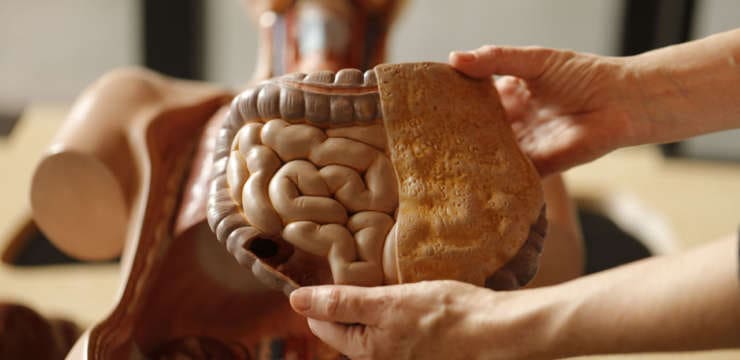“Individuals need to eat more fiber for optimal gut health. Can adding avocado to their diet help improve the gut microbe diversity?” Avocado Gut Support…

Gut and Intestinal Health: The health of an individual’s gut determines what nutrients are absorbed along with what toxins, allergens and microbes are kept out. It is directly linked to the health of the whole body. Intestinal health could be defined as optimal digestion, absorption, and assimilation of food. But this is a job that depends on many other factors. More than 100 million Americans have digestive problems. Two of the top-selling drugs in America are for digestive problems, and they run in the billions. There are more than 200 over-the-counter (OTC) remedies for digestive disorders. And these can and do create additional digestive problems.
If an individual’s digestion is not working properly, the first thing is to understand what is sending the gut out-of-balance in the first place.
Low-fiber, high-sugar, processed, nutrient-poor, high-calorie diet, causes all the wrong bacteria and yeast to grow in the gut and damages the delicate ecosystem in your intestines.
Overuse of medications that damage the gut or block normal digestive function, i.e. acid blockers (Prilosec, Nexium, etc.), anti-inflammatory medication (aspirin, Advil, and Aleve), antibiotics, steroids and hormones.
Undetected gluten intolerance, celiac disease or low-grade food allergies to foods such as dairy, eggs, or corn.
Chronic low-grade infections or gut imbalances with overgrowth of bacteria in the small intestine, yeast overgrowth, parasites.
Toxins like mercury and mold toxins damage the gut.
Lack of adequate digestive enzyme function, from acid-blocking medications or zinc deficiency.
Stress can alter the gut’s nervous system, cause leaky gut, and change the normal bacteria.
Visits for intestinal disorders are among the most common trips to primary care doctors. Most, which also includes most doctors, do not recognize or know that digestive problems wreak havoc in the entire body. This leads to allergies, arthritis, autoimmune disease, rashes, acne, chronic fatigue, mood disorders, autism, dementia, cancer, and more.
Having proper gut and intestinal health is absolutely central to your health. It is connected to everything that happens in the body.
Functional medicine and health coaches are able to look at the source of the gut imbalance and run diagnostic tests to discover the exact type and number of bacteria imbalances. From here, natural supplements can be recommended such as a probiotic to recreate a healthy gut microbiome.

“Individuals need to eat more fiber for optimal gut health. Can adding avocado to their diet help improve the gut microbe diversity?” Avocado Gut Support…

“For individuals with stomach issues, can maintaining gut flora balance promote and improve gut health?” Gut Flora Balance Maintaining gut flora balance is part of…

Should individuals with existing gastrointestinal problems eat bananas? Bananas Bananas can be easy to digest and are often recommended for nausea and diarrhea, however, not…

The digestive system breaks down the foods eaten so the body can absorb the nutrients. During digestion, the unnecessary parts of these foods are turned…

Pesto is a sauce that is made with garlic, pine nuts, basil, cheese, and olive oil, which creates a strong, rich flavor. It is used…

Before the body can benefit from consumed nutrients, the gastrointestinal tract has to digest and absorb the foods. Before eating, the body needs to feel…

Regular exercise and physical activity help with cardiovascular health, improved mood, better management of chronic conditions, and can help digestion. For individuals with any GI…

The human body is about 60% to 75% water. Adequate hydration is necessary to flush toxins from the body, is essential for cognition, prevents dehydration,…

Not getting enough fiber in one’s diet can lead to fiber deficiency. Fiber helps support gut and microbiome health. Individuals not getting enough fiber may…

Body misalignment can cause various symptoms to be experienced, ranging from headaches, neck and back pain, sore feet, discomfort in the joints, muscles, or nerves,…

Viruses, bacteria, fungi, and protozoa are the microorganisms that naturally live in the digestive tract. Sleep affects gut health and vice versa. A healthy gut…

Digestive disorders affect millions of individuals and cover a variety of diseases ranging from mild to severe. These conditions involve the digestive tract, also known…

Introduction Dr. Jimenez, D.C., presents how chronic metabolic connections like inflammation and insulin resistance are causing a chain reaction in the body in this 2-part…

Introduction Dr. Alex Jimenez, D.C., presents how metabolic connections are causing a chain reaction to major chronic diseases in this 2-part series. Many factors often…

Introduction When it comes to the torso is surrounded by various muscles that help protect the vital organs known as the gut system and help…

The body needs food for fuel, energy, growth, and repair. The digestive process breaks down food into a form the body can absorb and use…

Fermentation is a process where bacteria and yeast are used to break down foods. The fermentation process has been around for centuries and was initially…